Emergency services: 'You take the trauma home with you'
- Published
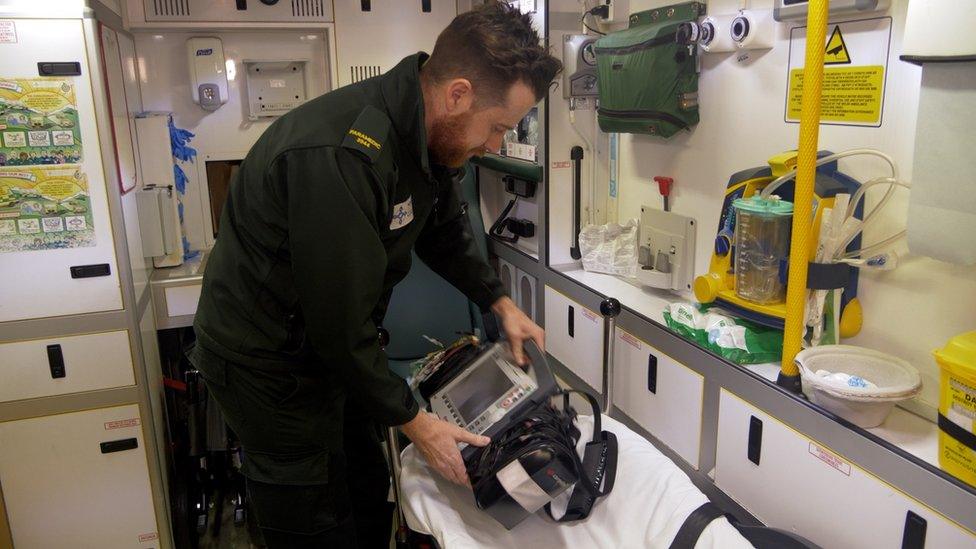
Paramedic Will Moore said the trauma of his job can heighten his sense of fear as a parent
Emergency services workers see and hear of some of the most traumatic human experiences, often on a daily basis.
The number of police officers in Wales off work with stress more than doubled over the past four years.
Figures show ambulance staff have the highest rate of sickness across NHS Wales, which from April to June was at its highest in four years.
A paramedic and a detective sergeant told BBC Wales how hard it could be dealing with such trauma.
Recent figures from Mind Cymru showed about 90% of emergency workers had experienced stress while 25% had contemplated suicide.
The paramedic
Mr Moore said he found attending calls to dead patients very challenging
Will Moore, 32, trained as a paramedic in London but is now based in Cardiff. He and wife Jess have an 11-month-old daughter named Dolly and are expecting another baby in April.
Asked what he finds hardest about his job, Mr Moore said attending calls where the patient was a child were the most challenging, particularly as a father and an uncle.
"Now I am around kids a lot, I can relate to it a lot more now and understand how parents must be feeling if their children are particularly unwell, particularly if it is a paediatric death," he explained.
"You do take it home, you do worry about your own kid then. My daughter broke her arm recently - she fell off the sofa - and I was absolutely distraught."
Other challenging calls are those where the patient is already dead, called recognition of life extinct (ROLE) calls.
"I find it challenging to console the family sometimes, especially when they are unaware of the patient's health condition," Mr Moore said.
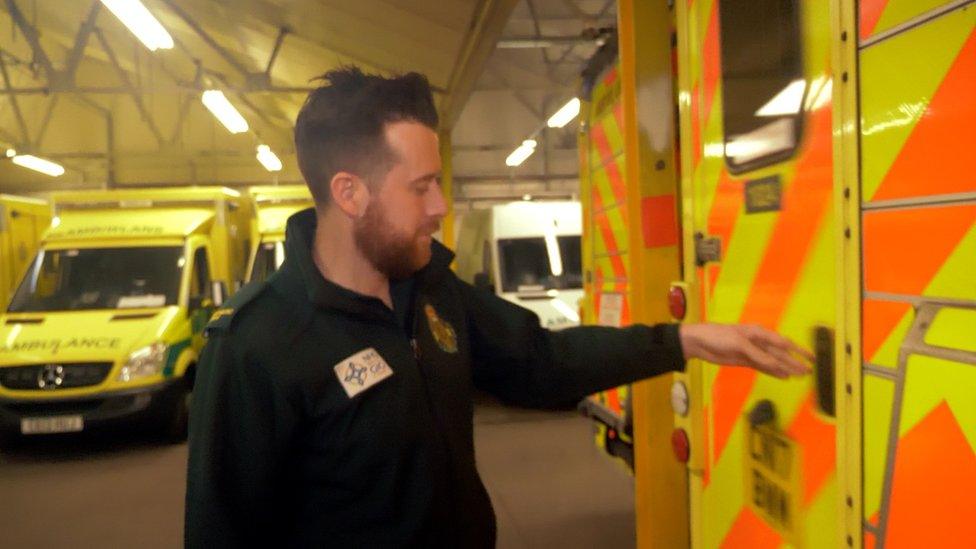
Delivering a baby can provide a welcome tonic to the "gore and death", according to Will Moore
"I went to one, a middle-aged woman in her 50s. She hadn't been seen for three months and had been deceased for that long.
"Her son had an argument with her three months previously and he hadn't spoken to her. He came over to see her, and trying to explain to him what had happened was particularly difficult."
But for all the challenges, Mr Moore said the job was very rewarding, and there are particular calls he finds very satisfying.
"Not every job is gore and death," he explained.
"We are trained to deal with maternity jobs and it is always wonderful when you bring new life into the world and put smiles on parents' faces."
The detective
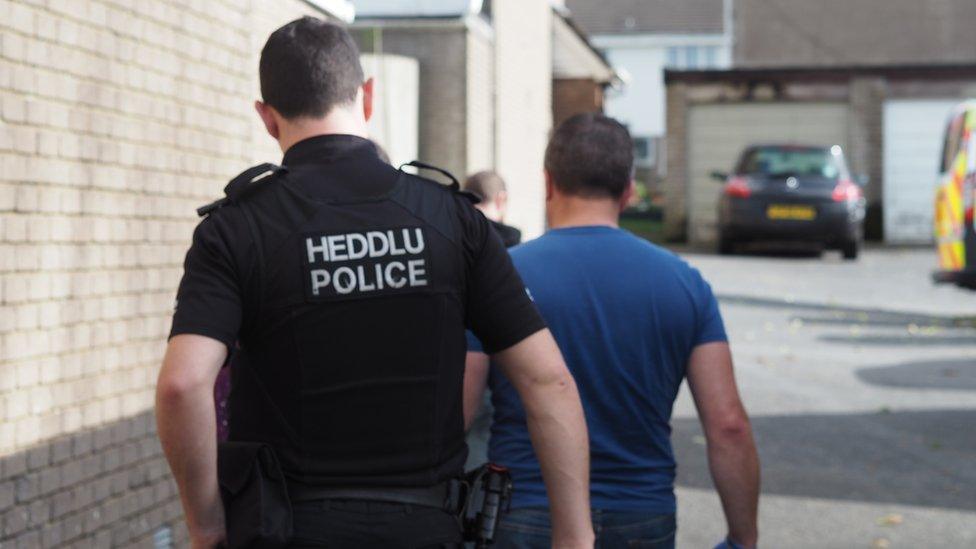
Police, like other emergency services, use each other as a support network, Det Sgt Merrix said
Det Sgt Steve Merrix has investigated child sexual abuse for the last 11 years and is currently supervising 14 complex investigations for Dyfed-Powys Police.
Based in Pembroke Dock, he has three grown-up children and a wife. But he recalled how difficult it was separating his work from his personal life during one particular case in the early 90s.
"It did affect me," he admitted. "I had a young family with children a similar age to the victims. It affected the way I engaged with my children.
"Come to bath time, I really didn't want to bath my own children, and I would say to my wife 'you bath the children'."

Det Sgt Merrix said the trauma of hearing victim testimony could be "horrendous"
Det Sgt Merrix, 53, said "horrendous and traumatic" child sexual abuse images were now investigated by the cyber crime unit.
"The trauma for us is interviewing the victim and going through their recollection, which can be horrendous," he said.
"And then going and having to deal with the defendant and remaining professional, that can be difficult for some."
Asked whether he thinks his perspective on people has changed, Det Sgt Merrix said: "I think I'm probably not as trusting as my wife is."
- Published25 August 2018

- Published26 March 2018
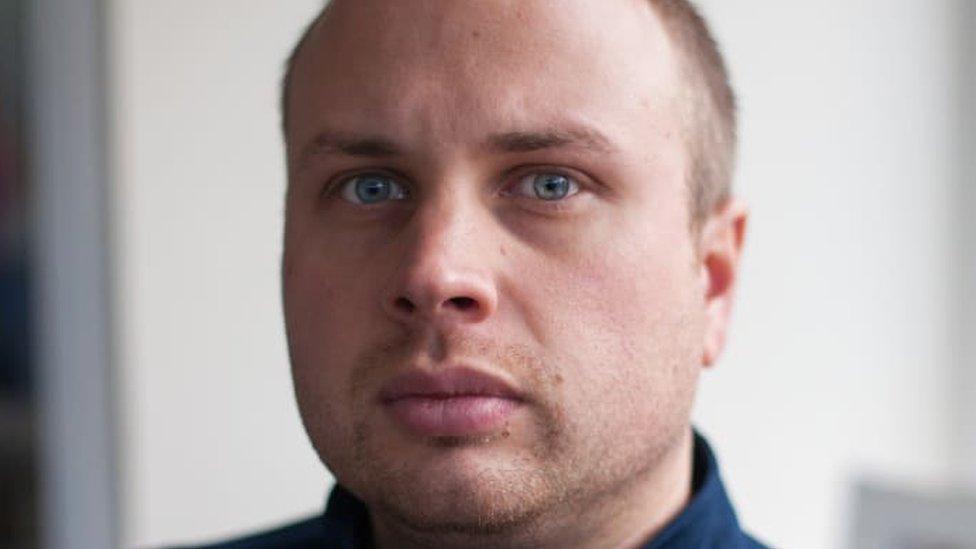
- Published18 August 2017
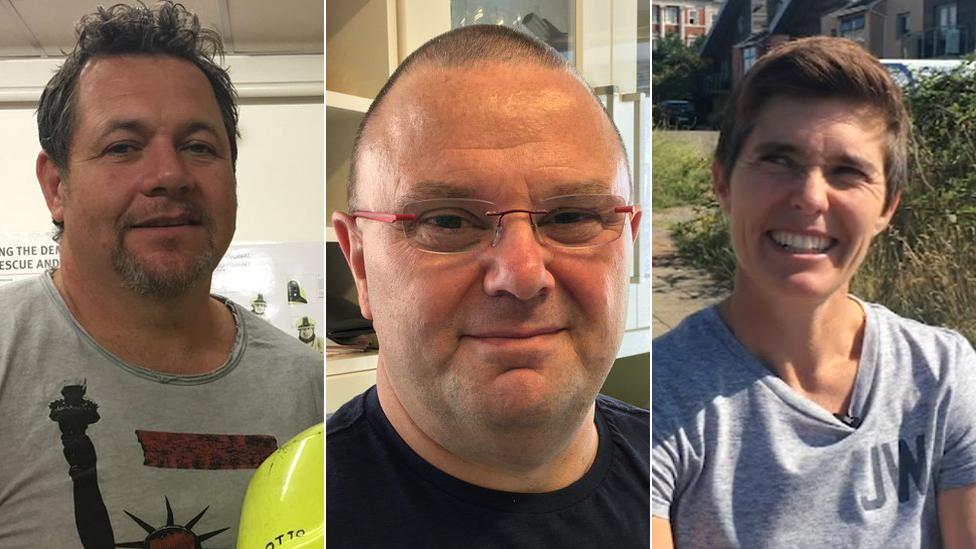
- Published31 July 2017
